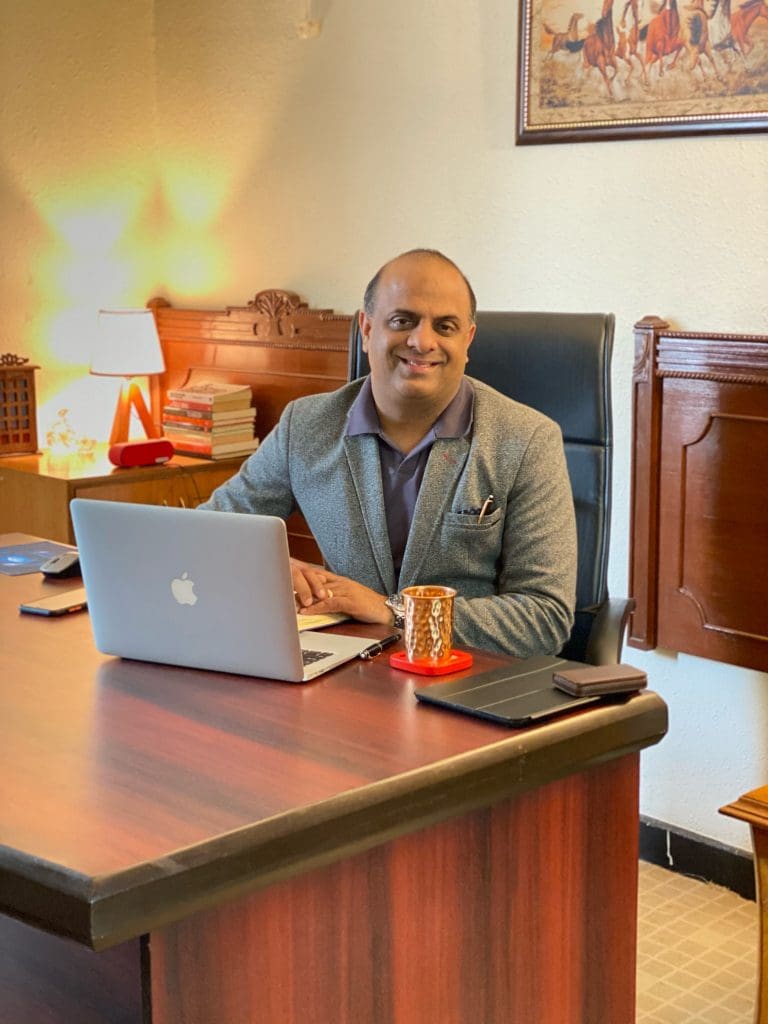
Today’s Traveller #Know Your Leader motivational initiative invites Mehul Sharma, Founder and CEO, Signum Hotels & Resorts to share his experiences, his journey, and some unknown facts about him that keep him going.
Today’s Traveller: How do you keep up your team’s morale?
Mehul Sharma: The morale of your employees is directly related to the type of interactions they get on a regular basis. When people are happy at work, they tend to do a better job. Errors are reduced, productivity increases and customer service improves.

Having great office interactions also improve teamwork, which makes an entire team more efficient during times of high stress, such as holiday sales or end-of-year report production. It doesn’t matter what your company does, what product or service it provides, good interaction means that people are having positive experiences.
An environment and company culture of positive interactions are not achieved by accident. Google works very hard to create a corporate culture where employees feel that they can have a personal life, can adjust their schedules and can work on projects that they are passionate about.
This has created a corporate culture, in which innovation, creativity and passion are the underlying components of success for the company. Google is proud of its loyal employees who love to go to work.
As the boss, do you take a moment to ask how your team’s weekend was? Do you hold team meetings or one-on-one consultations regularly, so that you may discover and address any issues that your team is experiencing? People can tell when someone cares and who takes the time to understand team members’ goals, challenges and interests, which may help you facilitate positive interactions among your team.
Today’s Traveller: A major milestone that shaped you as a Leader
Mehul Sharma: With Covid-19, the well-being of my colleagues took priority. As I understood it, many people were struggling at home because of the situation and the crisis that surrounded us. And I have to admit that I faced challenges too. I think all of us were affected, one way or the other. So, it’s a question of being empathetic and trying to put yourself in the shoes of your colleagues.
The opportunity to regularly meet with your colleagues is vital. So scheduling regular team meetings, not long meetings that are going to take the whole day, but regular meetings that enable you to understand what everybody’s doing, what the priorities are, so you can flex those dependent on what’s coming in and out at any one time to stay connected.
I think it’s really important that we don’t lose those one-to-one interactions. In fact, you may even want to increase those. On a more personal level, I would suggest trying to find a hobby that you could do from home. In my case, that hobby is reading. I make sure that I dedicate at least half an hour to reading a chapter of my latest book before I start working in the mornings, which is what I used to do before the pandemic.
Today’s Traveller: How do you approach a challenge?
Mehul Sharma: I seek opportunity in every challenge that I face. Weighing the pros and cons when we step back, our mind continues with the processes of blame, accusation, and negative thinking. However, it is up to us to clinically come up with pros and cons of a situation.
We need to make up our mind to analyse this and use the data for immediate resolution and perhaps, for future action too. As a student, if you had two colleges to choose from, did you not carefully think about the college ranking vs. the department you were offered admission in? It’s the same in work and in life as well.
There is never an ‘all lose’ situation. There are always ‘lose now, win in the long run’ solutions. Strengthening the emotional intelligence to arrive at the right decision though, is a step that is crucial.
Building your own emotional intelligence is imperative to remain calm, whether you face profit or loss, pleasure or pain. Finding a stress relief mechanism like meditation, where your attention is trained to focus on what you want to think about (and not let a certain issue hijack your mind) is key.
Only if you have been doing this when you are well and happy can you control your mind when you are at the crossroads. Go for a brisk walk, repeat a calming word or stay still, like Jill Taylor had to do, and call the ambulance yourself. Remember, you’re your own presence of mind. Adopt the right emotional attitude. PLAN WORK & WORK THE PLAN. Wherein, counsel cannot be given. It has to be taken.
So, having listened to the reasoning, the next mandatory step is planning, making checklists and setting up milestones to overcome the challenge. A reasonable timeline that is not overambitious has to be fixed. This timeline should be communicated to all people concerned. Then, you must be tough about your deliverables, yet realistic about others’ availability.
Today’s Traveller: What is that one thing that you have learnt during Covid-19 Pandemic?
Mehul Sharma: Now that lockdowns are easing, every business leader, owner or manager will have one question on their mind: “How can we make this business work?”.
Businesses are essentially simple. They need sales. They have costs. And they need to generate a profit to survive. They grow when demand is rising and shrink when they fail to innovate or don’t switch to products or services that are more in demand. In reality, business life is demanding and any pause in sales can be devastating.
But now that lockdowns are easing, every business leader, owner or manager will be working through sales data, cash-flow forecasts and profit-and-loss projections with one question on their mind: “How can we make this business work?”. Unfortunately, all the usual seasonal variations and trends can no longer be relied on; COVID-19 has changed everything.
Clear and rapid responses to changing market conditions are the key to commercial survival. In fact, the ways in which businesses have fought the problems during COVID-19 can and should be part of all corporate thinking.
Companies have to challenge their assumptions about what customers want and focus on being competitive. What can be automated or done online? Act, and act fast. Doing nothing will only leave you with bigger debts and problems to manage.
Today’s Traveller: What is that one thing that you cannot miss?
Mehul Sharma: Morning Walks! Morning walks will not only allow more control in the early hours, but they also open more opportunities to do things that matter to me like being happy. Happiness is about wanting the things that you already have. By enumerating the blessings they’re grateful for.
- Which non-professional activities give you energy and satisfaction
Mehul Sharma: Green Therapy! I wanted to connect with nature. I had an instinct that it would help my mental health if I could connect with the seasons, to live in nature’s time.
When you are gardening you get very involved, because of all the elements and the seasons. You can’t run away from it; you can’t feel superior. And by watching things grow, you realise that it isn’t always the fault of the plant if things don’t work – it’s about the seasons and the weather. It’s the same with mental health issues: it’s not always your fault.
Read More: News



